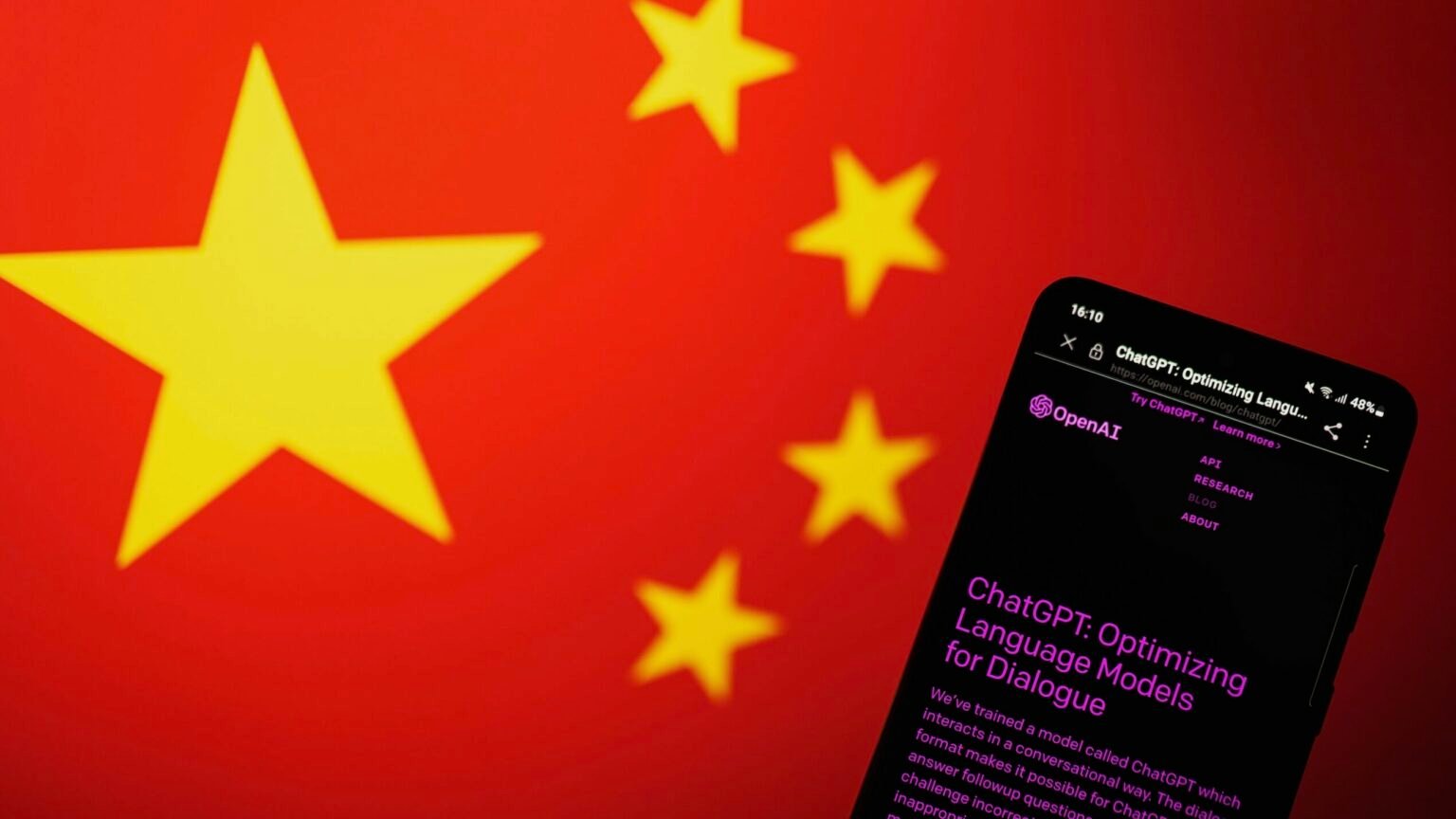China is experiencing a booming illicit market for OpenAI’s ChatGPT, as demand soars in that country, shaking its generative AI industry.
OpenAI launched ChatGPT in November to immediate success, which has made other tech companies rush to create their own alternatives. The chatbot is not yet available in China although the market there is already using it.
Also read:Could Mixed Reality Solve the Metaverse’s Sickness Problem?
A booming market for ChatGPT
Yuxin Guo, a master’s student at a Beijing University, got curious after hearing a lot about it and searched for it on Taobao, China’s biggest e-commerce platform where merchants offer just about everything.
On this platform, ChatGPT logins have become “a hot commodity.” People use foreign numbers, particularly virtual ones that can receive verification codes.
According to WIRED, a simple search on Taobao in early February returned more than 600 stores selling logins, with prices ranging from 1-30 RMB ($0.17-$4.28). Some stores, according to the report, have made thousands of sales.
On another platform, Tencent’s WeChat, a booming market for ChatGPT knockoffs has sprung up. This is mainly via mini programs (sub applications on the platform) like ChatGPT online.
The phrase “How to use ChatGPT within China” has been consistently trending for weeks on Baidu, China’s biggest search engine.
Experts have suggested the tool’s popularity has been a boon for the US in their race for AI supremacy over China, which is now under pressure to come up with its own alternative.
Since the launch of ChatGPT, central government and city authorities have announced new funds to come entice promising start-ups that may develop a Chinese version.
Limited access
Users in China, together with those in HongKong, Iran, Russia, and parts of Africa, cannot create an OpenAI account to access ChatGPT. Chinese authorities did not block it, and OpenAI hasn’t publicly explained why the chatbot is not available in these markets.
Despite restrictions, people in China have refused to back down, accessing the chatbot using Virtual Private Networks (VPNs) and foreign numbers.
“I got curious because so many people are talking about it… although not a lot of people seem to know clearly how to access it,” Guo said.
While there is no actual data on the number of Chinese citizens with access to ChatGPT, tech firms in the country have started a crackdown to address illicit access.
I'm in China and accessed ChatGPT you need a VPN and foreign live phone number Like a foreign sim card in your phone. Simple. Some of my Chinese students have accessed ChatGPT too.
— Dr Rob 🐀 (RATified) (@Trebornotrub) March 1, 2023
By late February, keywords like “ChatGPT” and “OpenAI” had been removed from Taobao while WeChat has replaced them with neutral names like “AI Smart Chat.”
For a short period this month, the government even blocked VPN access, to reassert control amid the wild excitement around using the tool.
Chinese firms make own ChatGPT alternatives
Several companies are investing in generative AI and incorporating ChatGPT technology into their businesses due to the interest the tech has generated across the globe.
According to Markets and Markets, the size of the global chatbot market is expected to balloon at a CAGR of 23.5% from an estimated $2.9 billion in 2021 to $10.5 billion in 2026.
The need for 24/7 customer support at lower operational costs, increased focus on customer engagement, and rising customer demand for self-service operations will drive the growth.
In China, firms are already busy scrambling to invent their own chatbots. Baidu announced in February that it would launch its Ernie bot for internal testing this month. It will be based on Ernie 3.0-Titan, a language model Baidu has been developing since 2019.
Baidu CEO Robin Li said during the company’s 2022 fourth quarter earnings call that Ernie bot will ultimately be integrated into the company’s search engine and Xiaodu voice assistant, and used in its AI Cloud and Apollo autonomous driving businesses.
After Baidu’s announcement, Alibaba said its research institute Damo Academy was also testing a ChatGPT-style tool.
In December last year, Shenzhen-based Proximai introduced ChatGPT’s underlying technology to a social app, such as a 3D game with talking virtual characters. Beijing-based entertainment software company Kunlun Tech, meanwhile, will integrate ChatGPT into its web browser Opera, while Tencent has set up a team to develop a chatbot called HunyuanAide.
Government not so excited
Although ChatGPT sparked a frenzy in China, with companies incorporating its technology into their workflow, authorities there are not very keen on it, or are rather cautious.
There is a reason for this.
“In some ways, this type of app, trained on vast volumes of what Beijing would view as uncensored data, represents one of the most serious challenges to Beijing’s censorship apparatus since the banning of Google search in China more than a decade ago,” Paul Triolo, a technology policy lead at consulting firm Albright Stonebridge, told VICE World News.
Unlike home-grown search engines that are sympathetic to the system, ChatGPT does not shy away from thorny issues for Beijing.

VICE World News used a trial service offered by a Hubei-based company and asked ChatGPT the significance of June 4th, to which it responded: “June 4th is a significant date in Chinese History as it marks the anniversary of the Tiananmen Square Massacre in 1989.
“On this day, Chinese military forces violently suppressed a student-led pro-democracy demonstration in Beijing, resulting in the deaths of hundreds of people.”
A similar search using Chinese domestic internet would, of course, provide different results.
Earlier this month, Minister of Science and Technology Wang Zhigang told a press conference that the country was planning on regulating the AI industry. He acknowledged the potential of ChatGPT tech, but also stressed the need to “strengthen ethical regulation.”









 and then
and then